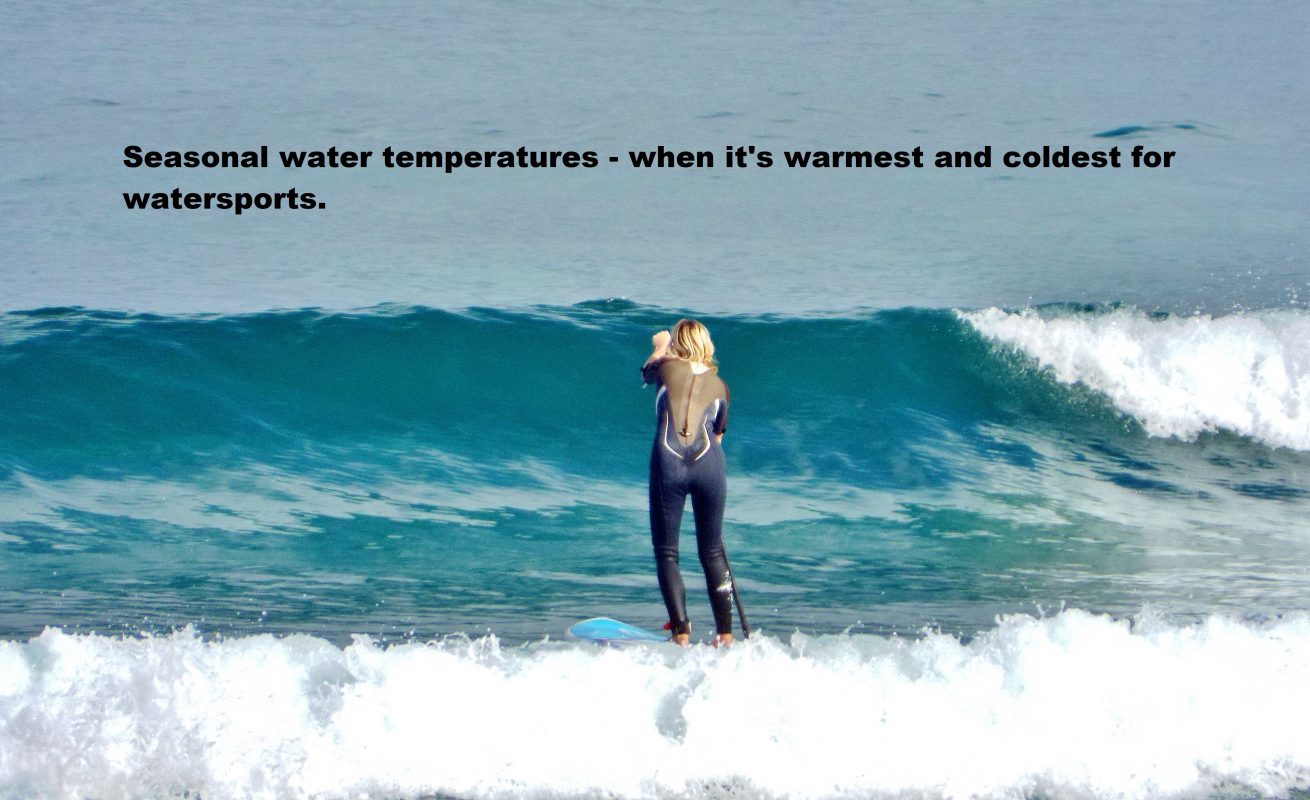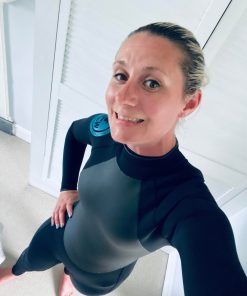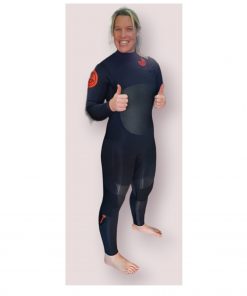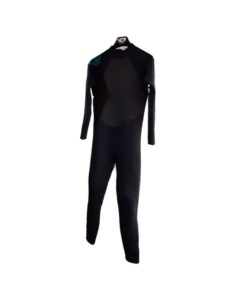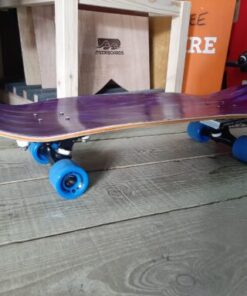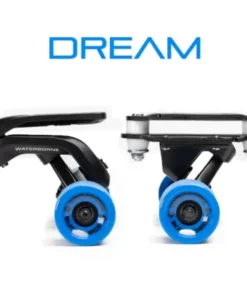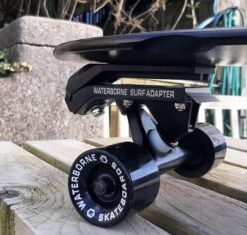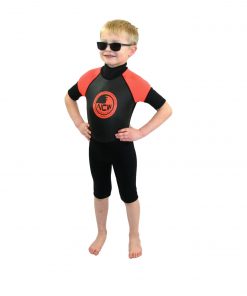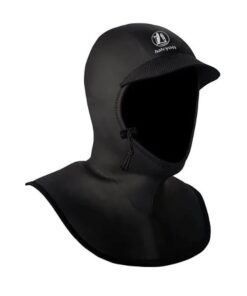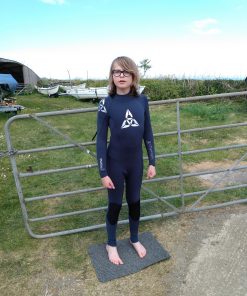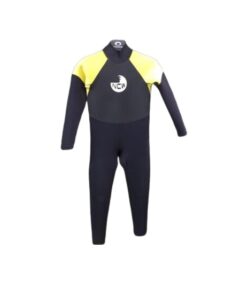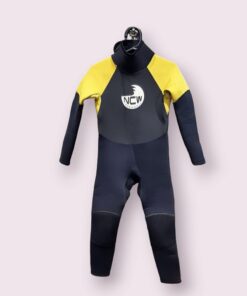Seasonal water temperatures fluctuate massively throughout the year. Many fair weather watersports peeps tend to hibernate during winter – which is understandable. General weather’s less likely to be good, storms can be prominent and cold conditions hit more often – especially once we go past December. Yet water temperatures, particularly those of the sea, don’t follow suit as you’d expect. For instance, just because April days can be warm and sunny doesn’t mean your local stretch of Atlantic blue will follow that trend. In fact, the truth’s far from it, as we explain in this article.
Shop wetsuits online. Wetsuits for all watersports in our online shop here.
Spring sea temperatures.
Seasonal water temperatures in open, tidal stretches are at their coldest during spring. With weather turning cooler during autumn/winter the warming of the sea chills off massively. Add to the mix warmer days as air temperatures start to hot up once again and anyone taking a dunking following a winter hiatus is due for a literal shock.
In some cases, particularly along those secluded nooks and crannies, it can be extremely cold. This means you’ll need your thickest wetsuit and probably booties, gloves and hood.
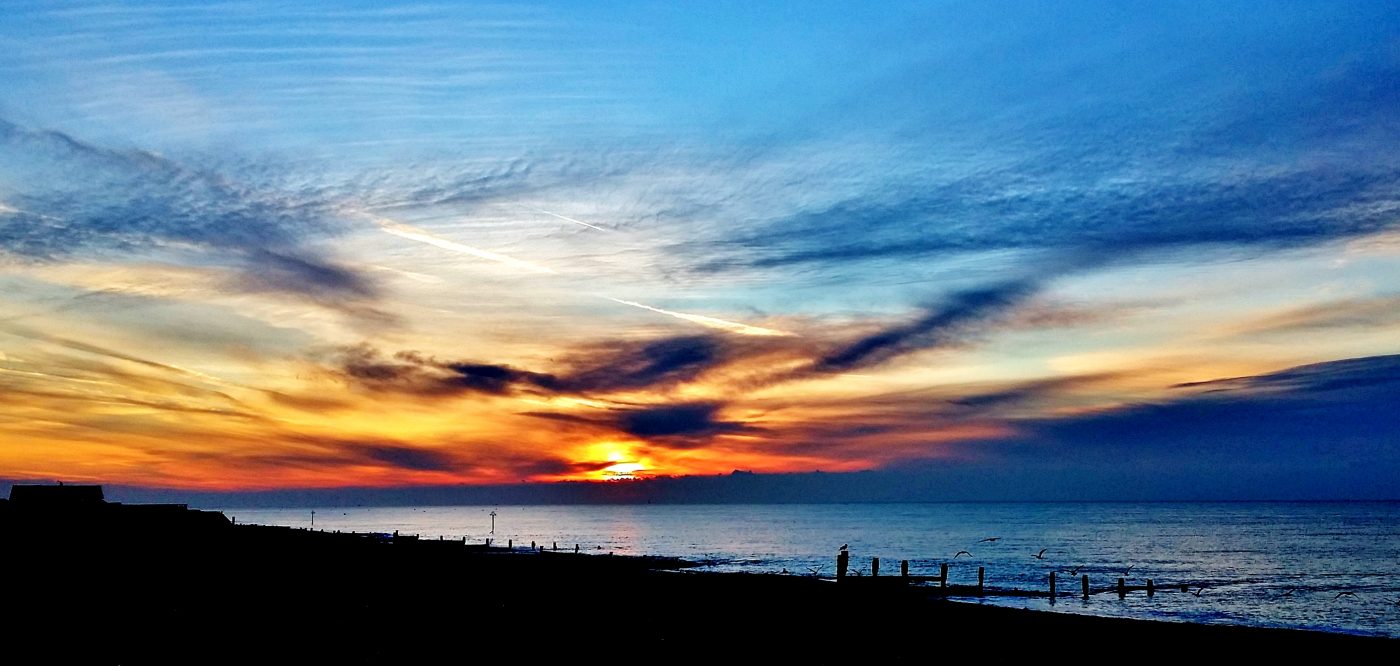
Summer water temperatures.
By early summer, having had a bit of sun in the mix, seasonal water temperatures are starting to increase. Although don’t be fooled because until at least July things will mostly still be on the cooler side. If you’re surfing then a spring wetsuit may suffice but as far as shedding all your neoprene goes that isn’t the wisest move. As high season hits generally air temperatures will be warm to hot, depending on how those low pressures are spinning.
-
Waterborne complete Surfskateboard set-ups – MORE INFO – CONTACT US
£50.00 -
Waterborne Skateboards Dream surf truck (front & rear).
Original price was: £139.00.£99.00Current price is: £99.00. -
Waterborne Skateboards surf adapters, decks, trucks, wheels & hardware.
£50.00
There will have been another jump in seasonal water temperature heat levels and it may be there’re days/periods when the bare minimum of water clothing’s needed. Be aware, however, that evaporative cooling and the wind chill factor can be and issue at any time of year.
Autumn shift.
The sea’s at its warmest during early autumn. Mercury levels may be starting to slump but warm waters abound – at least until mid to late autumn. And even then it’s still more than bearable. In fact, we’d suggest right up until late November.
If we’re having a particularly mild season then even December can be quite balmy. That said, you’ll still need to be wearing full rubber if you’re surfing at this time.

Winter cold.
Early winter isn’t too bad, even if sea temperatures do dip further. It’s only really when we get into the deepest depths of Jack Frost time that cold really becomes a factor. The more chill the weather the further cooling of the sea occurs. In the West Country, such as Cornwall, there’s benefit from the Gulf Stream that’s a large warming body of water which drifts close to southwestern shores.
-
Kids and junior 3mm shorty wetsuit
£24.95 – £27.95 -
Kids 3mm Cold Water Surf Hood. Fits under wetsuit collar (bib and tuck) with drawstring. Fits most kids up 54cm head circumference
£27.95 -
O’Shea Prisma childrens / kids back zip wetsuit full length 3/2mm
£76.95 -
NEW shop damage and repaired Kids NCW 5mm Winter Wetsuit size 3XL (8-9 years ish)
£55.00 -
like new – used Kids NCW 5mm warm wetsuit – size Small (age 3/4 years)
£45.00 -
Used / Pre-loved Kids NCW 5mm Winter Wetsuit size JS – age 10/11 ish
£50.00
It’s still Baltic at times, however, although in contrast, you can also experience bright, sunny days with little wind. It can be sublime getting wet if these kinds of day pop up. Unfortunately, the Gulf Stream doesn’t extend up the English Channel, past mid/north Wales and round into the North Sea. The latter, in particular, never really gets as warm as other areas due to its sheltered nature. A really thick wetsuit will be needed for surfing in the depths of winter here.
Inland water seasonal temperatures.
A quick note on inland water, such as lakes or rivers. If the body of water you plan on immersing yourself in is placid and static then it’ll warm much quicker than the sea but cool off quicker. Also, take into account the management of such stretches whereby authorities sometimes recirculate the water to replace and replenish. What was once a balmy day in the drink can suddenly be much chillier.
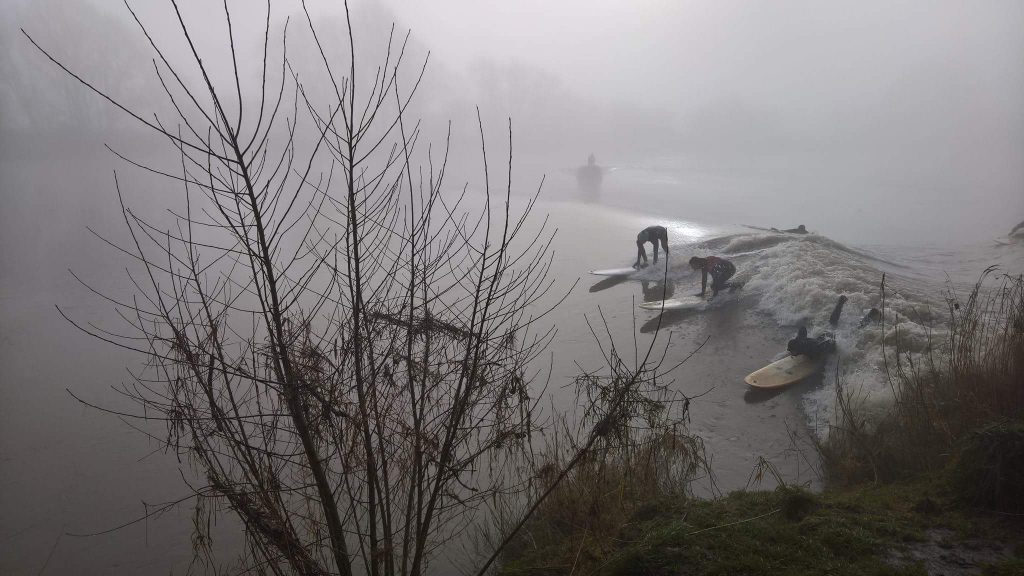
Moving water, such as rivers in flow, will be cold. Rain water flowing from on high will push downstream serving to keep moisture on the move. Your local spot could see higher temperatures when there’s less flow but it’s worth keeping in mind.
The best advice.
Whatever water you plan on using it’s worth being prepared. Having the right gear for the job in hand will serve you well and protect when conditions require. It’s always best to have the proper kit to hand rather than not. That way you’ll not get caught out. And don’t forget, if you particularly feel the cold you can always layer your wetsuit as the video below shows.

